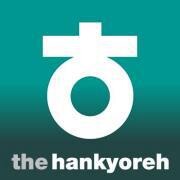hankyoreh
Links to other country sites 다른 나라 사이트 링크
[Editorial] Next government must take a fresh approach to North Korea

On Sept. 21, five hundred tons of wheat flour was provided as flood aid to North Korea by the international relief group World Vision. It is to be delivered to kindergartens and primary schools in the cities of Anju and Kaechon in South Pyongan province, where flood damage was particularly severe. We hope this provides some small amount of assistance to our fellow Koreans in the North, who are reeling from a double disaster of flooding and typhoons. The aid is especially significant because it is the first given to North Korea since the death of Kim Jong-il in December 2011. It leaves a somewhat sour taste, however, to see the only aid coming from the private sector, not the government.
The leaders in North and South Korea are both to blame for this. Early this month, Seoul proposed flood aid to Pyongyang, which indicated it was willing to accept it and asked to know what kind was on offer. The South Korean government said it would first provide 10 billion won (US$8.9 million) worth, including 10,000 tons of wheat flour, three million packages of ramen, and various medications, with the possibility of additional support at a later date. But the North Koreans turned the offer down after seeing that it didn't include the things they wanted: rice, cement, and heavy construction equipment.
First and foremost, we must point the finger at Seoul's pettiness in sending a list that left out all the things it knew North Korea wanted. The common wisdom and principled approach in humanitarian aid is to afford maximum consideration to what the recipient needs, while taking care not to hurt its pride. This applies even in cases where the recipient is not a member of the same people. Seoul's argument was that rice and cement might be diverted for military purposes, but by that reasoning it would be better off not providing anything at all. As for North Korea's decision to accept a trifling amount of private aid while rejecting massive amounts of government aid at a time when many of its people are suffering, one has to wonder whether it isn't using the flood assistance as a political tool instead of a way of helping those who are suffering.
The collapse of the government aid plan means far more than just the inability to help out desperate flood victims in North Korea. It also misses what is probably the very last chance to relieve the tensions that have afflicted inter-Korean relations during the Lee Myung-bak administrationâ
Editorial・opinion
![[Guest essay] Preventing Korean Peninsula from becoming front line of new cold war [Guest essay] Preventing Korean Peninsula from becoming front line of new cold war](https://flexible.img.hani.co.kr/flexible/normal/500/300/imgdb/original/2024/0507/7217150679227807.jpg) [Guest essay] Preventing Korean Peninsula from becoming front line of new cold war
[Guest essay] Preventing Korean Peninsula from becoming front line of new cold war![[Column] The state is back — but is it in business? [Column] The state is back — but is it in business?](https://flexible.img.hani.co.kr/flexible/normal/500/300/imgdb/original/2024/0506/8217149564092725.jpg) [Column] The state is back — but is it in business?
[Column] The state is back — but is it in business?- [Column] Life on our Trisolaris
- [Editorial] Penalties for airing allegations against Korea’s first lady endanger free press
- [Editorial] Yoon must halt procurement of SM-3 interceptor missiles
- [Guest essay] Maybe Korea’s rapid population decline is an opportunity, not a crisis
- [Column] Can Yoon steer diplomacy with Russia, China back on track?
- [Column] Season 2 of special prosecutor probe may be coming to Korea soon
- [Column] Park Geun-hye déjà vu in Yoon Suk-yeol
- [Editorial] New weight of N. Korea’s nuclear threats makes dialogue all the more urgent
Most viewed articles
- 1[Guest essay] Preventing Korean Peninsula from becoming front line of new cold war
- 2After 2 years in office, Yoon’s promises of fairness, common sense ring hollow
- 360% of young Koreans see no need to have kids after marriage
- 4Yoon’s broken-compass diplomacy is steering Korea into serving US, Japanese interests
- 5[Column] Why Korea’s hard right is fated to lose
- 6S. Korean first lady likely to face questioning by prosecutors over Dior handbag scandal
- 7[News analysis] Jo Song-gil’s defection and its potential impact on inter-Korean relations
- 811 years after US decamped, military base in Busan still festering with pollution
- 9[Editorial] The ideals of the Korean Provisional Government are still threatened today
- 10[Column] “Hoesik” as ritual of hierarchical obedience